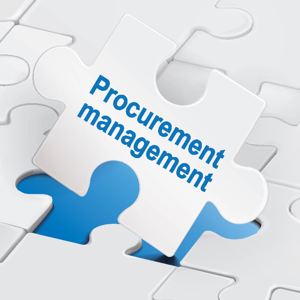Project Procurement Management Processes
Project procurement management is vital for successful completion. It has four steps which are planning, conducting, controlling and closing. Each step has inputs and outputs. This article discusses the project procurement management and the importance of it for successful project management.
Project Procurement Management
Procurement is an indispensable process for a project’s life cycle. In order to build up a project, various types of resources, materials and services are required. In the absence of resources, none of the projects can be achieved. Procurement is more than an ordinary process, it is the profession of tendering, finding, purchasing and acquiring materials, goods, and services from a supplier or an outer source. Project procurement management is a practice of collaboration with the outer sources and evaluating the bids to obtain the best-fit materials and services for the project.
Importance of Project Procurement Management
Most of the projects are actualized with a limited budget and time period. A limited budget means limited unit prices for materials, subcontractors, and services. Obtaining resources by focusing on the quality, contract requirements and unit prices are vital for staying inside the baseline budget. Therefore, project procurement management is important for successful project completion.
Concept of Project Procurement Management
The PMBOK Guide defines the Procurement Management as the processes necessary to purchase or acquire the products, services, or results needed from outside the project team.
Simply put, procurement is a process of selecting vendors, ordering goods and supplies, establishing payment terms, developing and administering the related contracts. Project procurement management relies on outsourcing. Outsourcing is a way of optimizing resources within a project. For example, you need an additional one thousand workers for two weeks to complete the project on time. This is a sudden increase so that rather than hiring and training them, you can find a subcontractor to bring the manpower for two weeks.
Often, this process consists of four specific phases: planning, conducting, controlling, closing.
Project Procurement Management Processes
Project procurement management has four major processes.
Plan Procurements
Planning is the first step in procurement management. It involves to plan and decide which supplies will get from an external source and which will not be. It is a documenting process of goods and services to be purchased. While performing this documentation, project scope and the work schedule should be analyzed, the number of materials, long lead items should be specified. Procurement Management Plan is prepared at this initial step. Planning process creates a framework for all other processes. Stakeholder register, risk register, project schedule, project management plan, and resource requirements are the major inputs of the planning step.Conduct Procurements
Conduct Procurements is the second process. Responses or bids of the vendors are evaluated according to the criteria determined in the Procurement Management Plan. This process is repeated for various types of materials and services to be procured. Shortlists are created to perform detailed negotiations with the suppliers. Agreements with the contractors are made at this step. A procurement management plan, proposals, organizational process assets are the inputs of the conduct procurements step.Control Procurements
Control procurements are the third process that includes monitoring the contract performance and making changes and corrections if necessary. Both the buyer and the seller control each other. Control procurements process manages procurement relationships and ensures that the performance of the vendor and seller meets the requirements stipulated in the contract.This process requires financial management support because it includes monitoring payments made to the vendor. Before the Close Out process, audits, performance reviews, and inspections should be done and corrective actions should be taken in this process. The project management plan, agreements, work performance data, and work performance reports are the inputs of the control procurements step.
Close Procurements
The PMBOK Guide defines the Close procurement process as the process of completing each project procurement that supports the close project or phase process.According to the definition, closing processes don’t happen at the end of a project. It takes place when the procurements are closed.
In other words, closing procurements and closing project doesn’t necessarily happen at the same time. But in order to close the project, all the procurements must be closed.
When the procurements are closed?
– In the event of contract completion
– In the event of contract termination
The closing process ensures that both sides have met their contractual obligations and resolves any remarkable and incompleted issues. Also, it confirms all work and deliverables produced is satisfactory.
Project management plan and the procurement documents, agreements are the inputs of the close procurements step.
Summary
Effective project procurement management brings the project to a successful conclusion. It is not effective for an organization to procure the resources inside the organization. Using the outer sources professionals and manpower may be cheaper and effective than hiring and training workers for a short period.
Basically, there are four phases in Project Procurement Management. Plan procurement is a documentation process that identifies what to purchase and who are the suppliers. Conduct procurement is an agreement phase with the suppliers by evaluating their bids. Control procurement is the monitoring and controlling phase that involves performance measurement practices. Buyer controls the supplier and the supplier controls the buyer according to the agreements. The last phase is the close procurements phase which supports the project closure. It is a process of completing each procurement.
To get the best procurement management services in Singapore visit Merx Construction Management.







